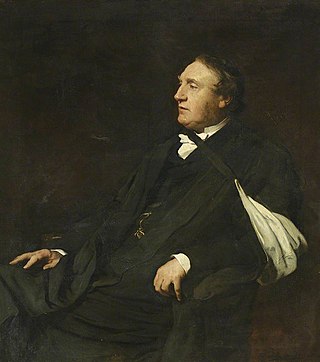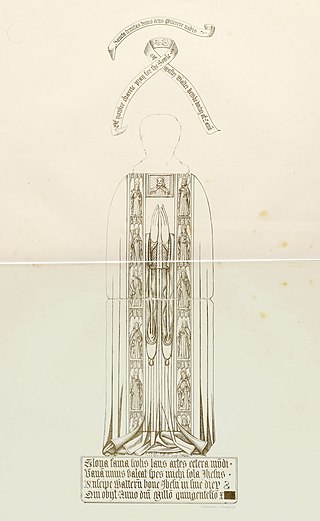Related Research Articles

Henry Latham was a priest and academic in the second half of the 19th century and first decade of the 20th.

Gonville and Caius College, often referred to simply as Caius, is a constituent college of the University of Cambridge in Cambridge, England. Founded in 1348 by Edmund Gonville, it is the fourth-oldest of the University of Cambridge's 31 colleges and one of the wealthiest. In 1557, it was refounded by alumnus John Caius. The college has been attended by many students who have gone on to significant accomplishment, including fifteen Nobel Prize winners, the second-highest of any Oxbridge college after Trinity College, Cambridge.
Physwick or FishwickHostel is a former constituent of the University of Cambridge located on the south side of the present Trinity Great Court, between the Queen’s Gate and Trinity Street. It was founded in 1393 when William Fiswick, the first esquire or armiger bedel of the university, bequeathed his Trinity Lane hall to Gonville Hall.

Trinity College Chapel is the chapel of Trinity College, Cambridge, a constituent college of the University of Cambridge. Part of a complex of Grade I listed buildings at Trinity, it dates from the mid 16th century. It is an Anglican church in the Anglo-Catholic tradition.
Henry Smyth, D.D. was a 17th-century priest and academic.
Henry Bond, LL.D was an academic in the second half of the 19th century and first decades of the 20th.
Edward Anthony Beck was a British academic in the last third of the 19th century and the first decades of the 20th.
Thomas Charles Geldart, LL.D was a lawyer and academic in the nineteenth century.
Thomas Le Blanc, F.S.A. was a lawyer and academic in the first half of the nineteenth century.
Sir Edward Simpson, of Acton, Middlesex was an English politician, lawyer and academic.
George Bramston was a lawyer and academic in the late seventeenth and early eighteenth centuries.
Robert Braunch was an English academic in the late 14th and early 15th centuries.
Henry Wells was an English academic in the late 14th and early 15th centuries.
Simon Dalling was an English priest and academic in the 15th century.
Simon Thornham, DCL was an English priest and academic in the 15th century.
William Dalling, DCL was an English priest and academic in the 15th century.
Edward Shouldham, DCL was an English priest and academic in the late 15th and early sixteenth centuries.
John Wright was an English priest and academic in the late 15th and early 16th centuries.

Walter Huke or Hewke was an English priest and academic in the late 15th and early 16th centuries.
Thomas Larke, DCL was an English priest and academic in the 15th and early 16th centuries.
References
- ↑ Alumni Cantabrigienses: A Biographical List of All Known Students, Graduates and Holders of Office at the University of Cambridge, from the Earliest Times to 1900, John Venn/John Archibald Venn Cambridge University Press > (10 volumes 1922 to 1953) Part I. 1209-1752 Vol. iv. Saal – Zuinglius, (1927) p400
- ↑ The Masters of Trinity Hall, Cambridge
- ↑ "Trinity hall; or, The college of scholarsof the Holy Trinity of Norwich, in the University of Cambridge" Malden, H.E. p46: London; F.E. Robinson; 1902
- ↑ The source says South Malling, but there is no modern place with that name. It may be referring to one or other of the modern East Malling and West Malling, or to an abandoned settlement.
- ↑ Geograph
